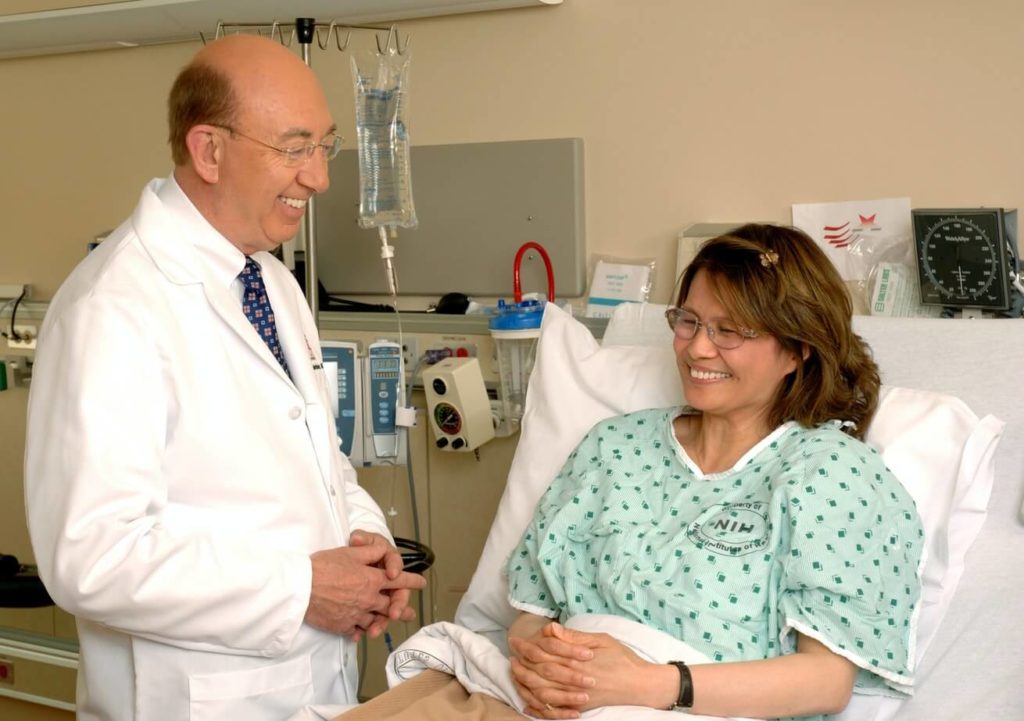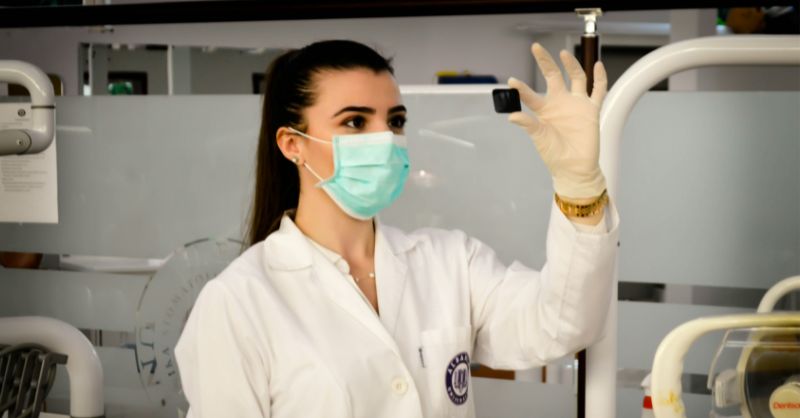High-quality healthcare requires the strong communication skills of physicians. It helps to build a therapeutic relationship between the patient and physician. Unfortunately, physicians tend to overestimate their ability to communicate. They remain so focused on treating patients that they forget to fulfil the basic needs of patients- “proper communication”.
Moreover, poor communication can lead to patient dissatisfaction, untreated illnesses, and complaints. Thus, this article will give you an in-depth knowledge of why communication skills are essential for a physician.
Table of Contents
Effective Communication Skills of Physicians
Communication skills comprise all types of communication. These include verbal, non-verbal, and written communication. A good balance of all these skills would help you satisfy your patients even more. Sometimes even showing the correct body language or just listening to them attentively can go a long way in winning their hearts!

In addition, physicians’ communication skills require three main types of communication. These include- active listening, empathy, and the use of open questions to explore a patient’s background. These skills lead to an increase in patient involvement. It also improves adherence to recommended therapy and improving the quality of care.
Moreover, active listening and empathy go hand in hand. You can only show empathy when you listen actively. This whole process will make your patients more comfortable around you. Thus, when they are comfortable enough, it becomes easy for them to answer the open questions.
On the other hand, there is also the time when the physician needs to deliver bad news, which can be very challenging. Again, relationship building is significant for this. They must understand the patient’s perspective, knowledge, and expectations. Physicians should not leave any room for miscommunication. They should instead focus on making their relationship with patients stronger.
Also, patients often regard their physicians as a source of psychological support. Conveying empathy as a physician is one of the best ways to provide this support. In addition, it helps to reduce feelings of isolation.
Clinical Research
Clinical research can help guide improvements for best practices. For example, randomised control trials can effectively find some treatment loopholes. However, it is more challenging to measure communication over time. Since most physician-patient relationships are long-term, involving multiple visits.

In studies, the patients’ perceptions are measured using surveys. These surveys the rates of frequency and other elements of a physician’s behaviour. However, these perceptions may be biased. Because patients may be influenced by other factors such as their state of mind or health status. Some can also have some personal rivalry with their physician. So, it is possible that the surveys do not accurately represent the consultation.
Also, a study explored the effects of communication skills training in physicians on the outcome of care. Again, it relates to the patient’s emotional distress. Improvement in physicians’ communication results in a reduction in emotional distress in patients. In addition, there was higher symptom resolution and better control of chronic diseases. Some cures include better blood pressure and pain control.
A further study was conducted on 39 randomly selected family physician offices over 315 patients. This study again proved the importance of the communication skills of physicians. Better communication skills help release a patient’s discomfort, and they feel more relaxed.
Another study investigated physician interaction styles and perceived health services quality by patients. It was looking at 2881 patient visits of 138 family physicians. It categorised physicians’ interaction styles into four categories. They are –
- Person-focused
- Biopsychosocial,
- Biomedical.
- High physician control.
These studies help us conclude a lot of things. First, we can now say that physicians with a person-focused interaction style report the highest quality of care.
Training

Effective Communication skills training helps to improve relationships between physicians and patients. But, the improvements tend to lapse over time. So it is crucial to maintain these new skills with practice and regular feedback. Besides, not all physicians’ are born with the tools of communication. So, they need to learn self-awareness and self-monitoring.
In a perfect world, getting yourself trained in the skills you currently lack will prove highly beneficial for you. Training provides that extra knowledge that medical school hasn’t taught. By completing a course, you can fill all the missing communication skills required to practice as a physician.
Benefits of Effective Communication Skills
Communication Skills of Physicians are essential to ease accurate diagnosis. It also helps to counsel appropriately, give therapeutic instructions.

In addition, you can establish a caring relationship with patients through communication skills. These core clinical skills are necessary for the effective delivery of health care and patient satisfaction.
There are three main goals of physician-patient communication. They are-
- Creating a good interpersonal relationship.
- Facilitating the exchange of personal information.
- Including the patient in decision-making.
Patents judge physicians on their “bedside manner”. It means how well they can communicate with patients and have a sunny disposition that helps if they are scared or in pain.
However, some critical benefits of the importance of communication skills of physicians are:
Empowerment of Patients

Today, patients recognise that they have power when dealing with physicians in malpractice suits. So, they are more inclined to speak up and voice a complaint. They also have more information at their fingertips with the arrival of the internet to diagnose symptoms quickly online. If a patient is brave, they will insist on better communication skills from their physician. Instead of feeling dismissed or ignored.
Thus, to avoid creating some extra drama or getting dragged in legal matters, you should be able to communicate well with your patients. It will not only bring you closer to them emotionally but will also give your practice a good reputation!
Conflict Resolution
Resolving conflicts is never easy. There are challenging situations that evoke anger, sadness, frustration, confusion, and helplessness. It is up to the physician to address these feelings and de-escalate the situation.

Effective physician-patient communication should minimise avoidance behaviour which stops patients from expressing their opinions. It should also involve productive conversation where the physician tries to see the patient’s perspective and vice versa.
Beliefs and Trust
Differing beliefs can affect health care. Because there may be competing therapies or distrust of the healthcare system and prescribed therapies. If there is a gap in perception, this may negatively impact treatment decisions.
Therefore, we know that physicians use a biomedical model to understand any illness. But they must also remember that social and behavioural factors influence patients’ beliefs and trust.
The benefits and importance of treatment must be understood to improve patient adherence to medical plans. Physicians should attempt to understand the patient’s perspective by judging their understanding of a disease. For example, they could ask the patient to summarize what was said. If the patient and physician agree, there will more than likely be a positive outcome for treatment.
Thus, the effective communication skills of physicians can go a long way in winning their trust level.
Patient satisfaction
Qualitative measures can be brutal to gauge but can better understand a patient’s subjective perceptions. Clinically, the most easily measured outcomes are psychological measures. But it is impossible to measure these, particularly with surgical or chronic illnesses.

Satisfaction is a complex unit to measure https://transparentpharmacy.net with many influencing factors. For example, how satisfied a patient is at the end of a patient-physician relationship depends on many factors. Nevertheless, it is the ultimate measurement of healthcare services delivery.
Moreover, its rating provides valuable data on the process of care. The general domains used to assess patient satisfaction involve many factors. These include-
- Availability of the physician.
- Patient education.
- Responsiveness to emotional needs.
The greater the satisfaction levels, the more likely the patient will continue to see that physician.
Communication skills can facilitate the comprehension of medical information. It also allows for the better identification of patients’ needs and expectations. Patients who report good communication with their physician are more likely to be satisfied with their care. Also, they are more likely to follow their physician’s advice. Once a patient gets comfortable, they share more information with their physician. Moreover, if a patient agrees with the physician about the nature of the treatment, they will be more inclined to follow the steps to recovery.

Also, satisfied patients play a dual role. They are suitable for both the patient’s well-being and the physician’s job satisfaction. Also, there will be fewer complaints and malpractice suits. It means that physicians will have less work-related stress and burnout.
However, there are some main predictors of satisfaction. These include-
- Patient’s perceptions of communication.
- Partnership with the physician.
- A positive approach from the physician.
For example, if a patient is satisfied with the physician’s communication skills, they are more likely to follow treatment.
Barriers to Effective Communication Between Physicians and Patients
There are many obstacles to good communication between the physician and patient. Such as a patient’s anxiety and fear and the burden of work on the physician. Also, fear of verbal abuse and unrealistic patient expectations is a barrier too.
As medical students progress through their medical education, it has been shown that their communication skills tend to decline. It is perhaps due to the emotional and physical brutalities. Such as the long hours and stressful situations. This can lead to a reduction in empathy and bedside manner. It further affects their patients.
It has been reported that physicians may avoid discussing the emotional and social impact of patients’ problems. It is because they find it too distressing when they cannot fix it. This behaviour tends to affect both the physician and the patient negatively. In addition, it may result in patients being unwilling to disclose problems, delaying or impacting recovery.
It has been found that when Physicians are guilty of discouraging patients from voicing their concerns. It deters patients from seeking medical care in the first place. Patients would feel disempowered and less likely to seek better explanations. It results in poor patient understanding.
Conclusion
Physicians are in a unique position of respect and power and may strongly influence patient’s health. Therefore, effective physician-patient communication can be a source of reassurance and support. It can also increase job satisfaction for the physician and help with patient confidence. Also, having a positive view of their health status can improve their health outcome.
The majority of complaints against physicians relate to issues of communication. It does not involve clinical incompetency. Patients desire physicians who can accurately diagnose and treat them. Also, communicate with them effectively.
Physicians who have better communication and interpersonal skills can detect problems early. Therefore, it helps to prevent medical crises, providing adequate support to patients.
Thus, to ensure an effective set of communication skills, you can enrol in our course. It will help you ace your profession!
Further resources
- Communication And Interpersonal Skills in Food And Beverage Service
- The Importance of Effective Communication in Healthcare
- Effective Communication Skills For Social Workers
- 20 Great Jobs to Consider if you have Good Communication Skills
-
How to Improve Your Interpersonal Communication Skills
- How Do People Develop Cross Cultural Communication Skills?
- Marriage Advice: The 8 Communication Skills of Happy couple
- 10 Essential Communication Skills for Workplace
- 10 Best Assertive Communication Worksheets and Techniques
- How to Tell Someone to Improve Their Communication Skills?
- 20+ Effective Communication Skills (Good for a Resume)
-
Different Types Of Communication: Everything You Need To Know
- A Definitive Guide To Basic Interpersonal Communication Skills
- The Importance of Listening Skills in Communication







 July 16, 2021
July 16, 2021








